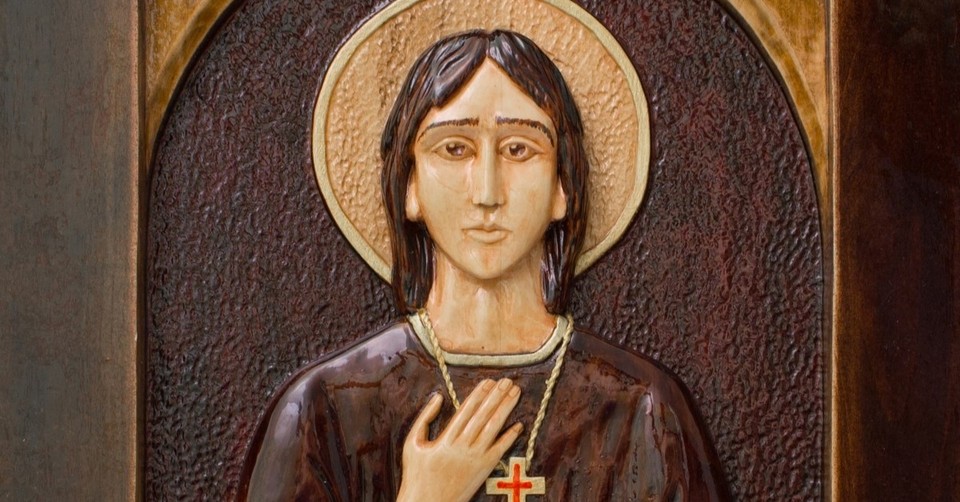What Do We Know about Paul’s Student Timothy?

Have you ever watched a pastor, from near or far, and been so moved by how God used that person?
Someone who was so faithful to the word and demonstrated incredible integrity, humility, and kindness that everyone respected him well?
Better yet—someone who had a significant impact in sharing the gospel that it was spreading far and wide?
Wouldn’t you want to be part of what the Holy Spirit was doing through that person?
That’s what I envision when I think about Timothy, one of Paul’s companions in his missionary travels. Timothy was so committed to following Paul’s lead that he spent much of his life doing so.
Where Does the Bible First Mention Timothy?
When Paul launched his first missionary journey (48-49 AD) to share the good news of Jesus Christ, one of the towns he visited with his companion Silas was Lystra. Acts 14 talks about a healing miracle that amazed the people and Paul’s teachings about the Savior. In Lystra, a woman named Lois and her daughter Eunice first heard about Jesus and Paul’s miraculous conversion—and became followers of Christ themselves. In retrospect, Paul believed their sincere faith and commitment to Christ also helped lead to Eunice’s son Timothy’s faith.
Later, on his first missionary journey, Paul again traveled through Lystra. This time, someone introduced him to Timothy. In Acts 16:1, we learn that he wasn’t just a follower of Christ but that other believers spoke well of Timothy.
Matthew Henry commented that Timothy “had gained a very good character among the Christians: he was well reported of by the brethren that were at Lystra and Iconium; he had not only an unblemished reputation, and was free from scandal, but he had a bright reputation . . . as an extraordinary young man and one from whom great things were expected.”
Paul must have been quite impressed because he immediately wanted Timothy to join him in his travels. The only problem was that Paul was concerned that the Jewish believers would have a problem that Timothy was not circumcised. So Paul himself circumcised Timothy. In “What Should Christians Know About Circumcision in the Bible,” Glory Dy writes that circumcision in the New Testament is not a requirement for salvation but may be a sacrifice offered, or maybe in keeping with societal norms. Paul spoke about this in his first letter to the Corinthians when he said that when he witnessed the Jews, he became like a Jew to win them for Christ. “To the weak, I became weak, to win the weak. I have become all things to all people so that by all possible means I might save some.” In all these things, he didn’t compromise the gospel’s message or cause anyone to stumble in their faith (1 Corinthians 9:19-23).
What Do We Know about Timothy’s Family?
Timothy’s mother was a Jew, and his father was a Greek. Later in his second letter to Timothy, Paul also mentions Timothy’s grandmother Lois. He wrote, “I am reminded of your sincere faith, which first lived in your grandmother Lois and your mother Eunice and, I am persuaded, now lives in you also.”
Nowhere is it mentioned that anyone had a problem with Timothy leaving the family (at what we would consider a young age—probably between 16 and 24). Granted, this put Timothy around the age when many Hebrew men got married and started their own families. However, married Hebrew men usually stayed near their parents—unless they had a stable career opportunity elsewhere.
Nor does Acts mention Timothy’s father protesting or making any comment about Timothy being circumcised—setting himself apart from his father’s Greek heritage. Clearly, his father was not the influence that his mother and grandmother were when it came to matters of faith.
Which Missionary Journeys Did Timothy Join Paul On?
According to the International Standard Bible Encyclopedia, Timothy headed out with Paul on his second journey and was with Paul when he reached Berea in Acts 17:14. By then, they had already been to Phrygia, Galatia, Mysia, Troas, Neapolis, Philippi, Amphipolis, Apollonia, and Thessalonica. Paul took a trip on his own to Athens (where he spoke in the Areopagus about the “unknown God”) and then connected again with Timothy and Silas in Corinth. Paul and his team stayed at Corinth for a year and a half, during which time Paul wrote his letter to the Romans.
Timothy evidently accompanied Paul on his third missionary journey, though he isn’t mentioned until he reached Ephesus, a former port city in Turkey. In their travels, they aimed to win souls for Christ and help set up churches that would teach Jesus’ message without watering it down, falling back into pagan teachings, or developing false doctrine.
Paul’s missionary journeys took place over less than 15 years, from 51 AD until he died in 64 AD. During that time, he mentored and co-labored with Timothy, considering him “my true son in the faith” (1 Timothy 1:2) and “my dear son” (2 Timothy 1:2).
What Churches Did Timothy Pastor?
While Timothy accompanied Paul to many cities for many years, during Paul’s fourth missionary journey, he requested that Timothy stay in Ephesus and care for the church there. He wrote two letters of instruction to Timothy in case his return wasn’t imminent. He writes in his first letter that he wanted Timothy to stay there to “command certain men not to teach false doctrines” (1 Timothy 1:3). He was concerned that some had wandered away from a “sincere faith” and might lead others astray.
Did Paul Mentor Anyone Besides Timothy?
Another young man in the Bible accompanied Paul in his travels, working for and being mentored by Paul along the way. This man, Titus, is referred to as “a son in the faith that we share” (Titus 1:4).
In Paul’s second letter to the Corinthians, he refers much to Titus as one who was very involved in ministering to the church at Corinth. He is called a “partner and coworker among you” (1 Corinthians 8:23). There is no other description about Titus except for his circumcision. While Paul left Timothy in Ephesus to pastor the church, he had special work for Titus to do in Crete in his absence.
It’s quite possible because both Timothy and Titus ended up in Rome (Paul requested Timothy’s presence before his death), and 2 Timothy 4 mentions that Titus had gone to a Roman province. Since Rome was where some of the first martyrs died around this time (64/65 AD), it’s likely both were assassinated before they met their Lord.
Points of Wisdom For Timothy
In his letters to the men he considered his sons in the faith, Paul’s instruction was at times gentle and loving, and other times authoritative regarding certain practices.
Paul wrote two letters to Timothy (1 Timothy and 2 Timothy) while he was in Ephesus that contained much advice and encouragement.
First and foremost, he called Timothy “my true son in the faith”) in 1 Timothy 1:2, and “my dear son” in 2 Timothy 1:2. Evidently, Paul felt like a spiritual father who had adopted Timothy and wanted to “train him up in the way he should go.”
In the letters to these sons in the faith, Paul’s instruction was at times gentle and loving and other times authoritative regarding certain practices
1. “I urge, then, first of all, that requests, prayers, intercession, and thanksgiving be made for everyone.” (1 Timothy 2:1-3)
2. “. . . train yourself to be godly. For physical training is of some value, but godliness has value for all things, holding promise for both the present life and life to come.” (Timothy 4:8)
3. “Don’t have anything to do with foolish and stupid arguments, because you know they produce quarrels.” (2 Timothy 2:23)
4. “So do not be ashamed to testify about our Lord, or ashamed of me his prisoner. But join with me in suffering for the gospel, by the power of God, who has saved us and called us to a holy life . . .” (2 Timothy 8:9)
5. “All Scripture is God-breathed and is useful for teaching, rebuking, correcting and training in righteousness, so that the man of God may be thoroughly equipped for every good work.” (2 Timothy 3:16-17)
In Paul, Timothy found a father figure and spiritual mentor who taught him to fight the good fight of faith. Perhaps one of his most valuable pieces of advice can be found in one of Timothy’s letters–and it’s a word for all Christians everywhere. “So do not be ashamed to testify about our Lord...but join me in suffering for the gospel, by the power of God, who has saved us and called us to a holy life–not because of anything we have done, but because of his own purpose and grace” (2 Timothy 1:8-9).
Photo Credit: © Getty Images/dobryak839
Mary Oelerich-Meyer is a Chicago-area freelance writer and copy editor who prayed for years for a way to write about and for the Lord. She spent 20 years writing for area healthcare organizations, interviewing doctors and clinical professionals and writing more than 1,500 articles in addition to marketing collateral materials. Important work, but not what she felt called to do. She is grateful for any opportunity to share the Lord in her writing and editing, believing that life is too short to write about anything else. Previously she served as Marketing Communications Director for a large healthcare system. She holds a B.A. in International Business and Marketing from Cornell College (the original Cornell!) When not researching or writing, she loves to spend time with her writer daughter, granddaughter, rescue doggie and husband (not always in that order).
Originally published June 05, 2023.




